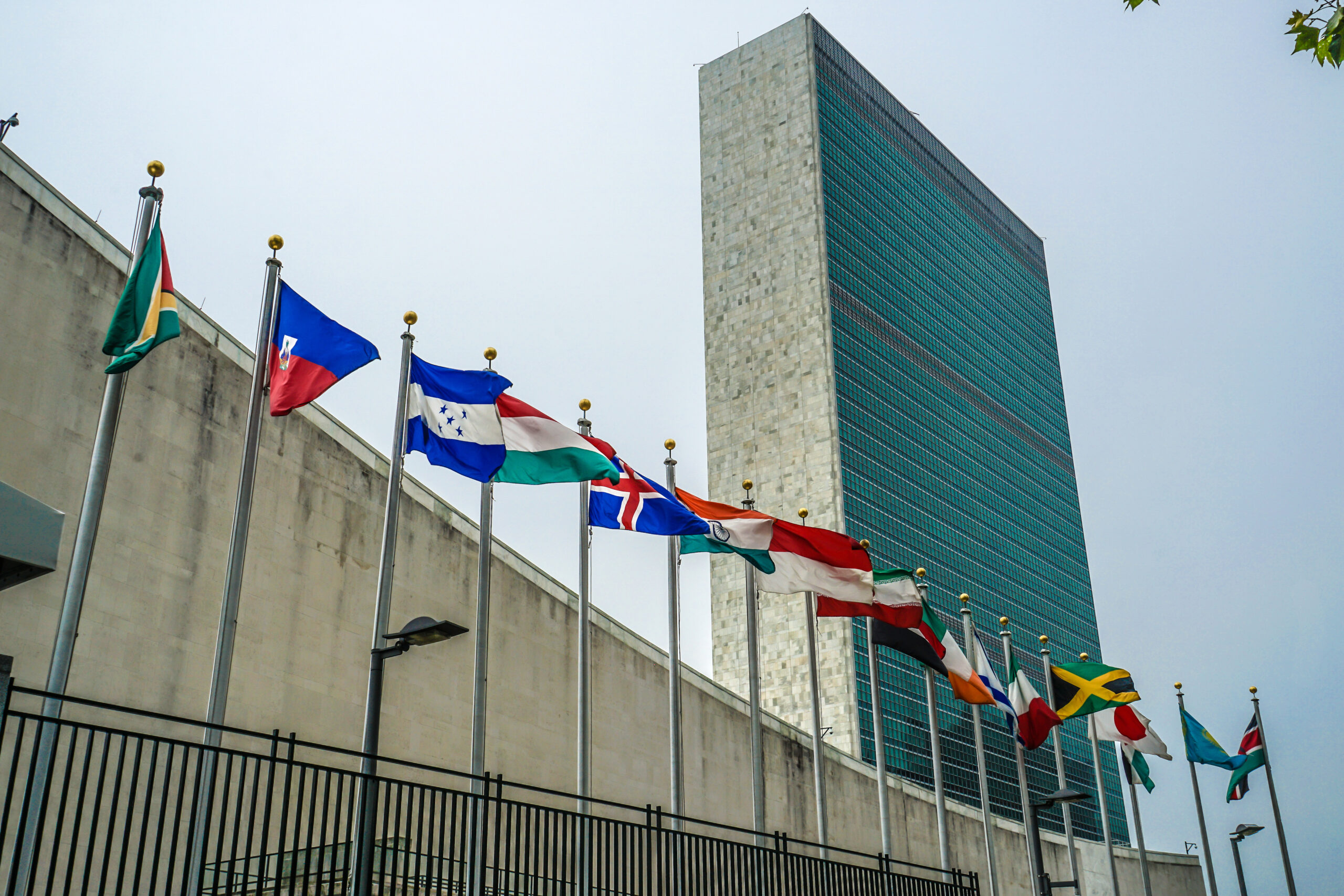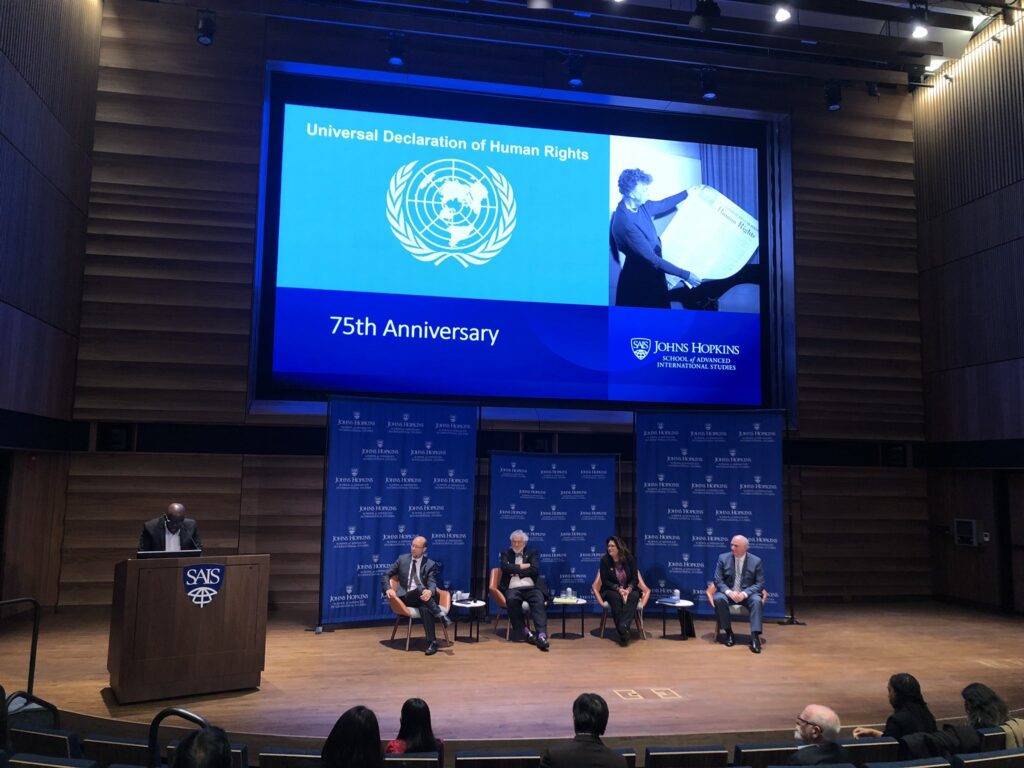3 reflections on The UN Universal Declaration of Human Rights on its 75th anniversary
Navi Pillay, former UN high commissioner for human rights, discusses the legacy of the historic document

- Image credit kanzilyou
December 2023 marks 75 years since the United Nations General Assembly accepted the Universal Declaration of Human Rights, written by a committee led by first lady Eleanor Roosevelt.
The document opens by declaring, “All human beings are born free and equal in dignity and rights.” It then lays out 30 things that every person would have a right to in an ideal world. It banned slavery and enshrined the right to own property. It calls for an end to racial and sexual discrimination. Many of its aims remain unachieved.
Navi Pillay, former U.N. high commissioner for human rights, reflected on the historic document at a recent event at the Johns Hopkins University Bloomberg Center. Here are her three key takeaways:
- The world has changed in 75 years.
The world has become a human-rights-based society in the decades since the Declaration was first enacted, Pillay said, pointing to the role the organization played in ending apartheid in her home of South Africa.
“The U.N. has set up many mechanisms for justice and accountability,” she said. “What you hear from victims on the ground is they want to see justice being done, not in a patched-up way in which they play no role.”

2. The Declaration matters.
Pillay spoke of meeting South Sudanese women who said their husbands and sons killed their 12-year-old daughters after they refused to enter into marriages. The women told the local police, but nothing happened. Pillay told them about the Universal Declaration of Human Rights.
“As I left, I felt so despondent,” she said. “But when I got back a month later, the ambassador of South Sudan came to see me and he said, something has happened in South Sudan that has never happened before. Those women you spoke to organize themselves and went to see the governor of the province and demanded their rights.”
3. More work is needed to ensure human rights worldwide.
Despite the advances made, Pillay urged activists to continue to advocate for more expansive rights.
“The advancement of human rights doesn’t happen because governments wake up some day and say, ‘All right, we want to do more for human rights.’ No, it always comes from young people and civil society,” she said.